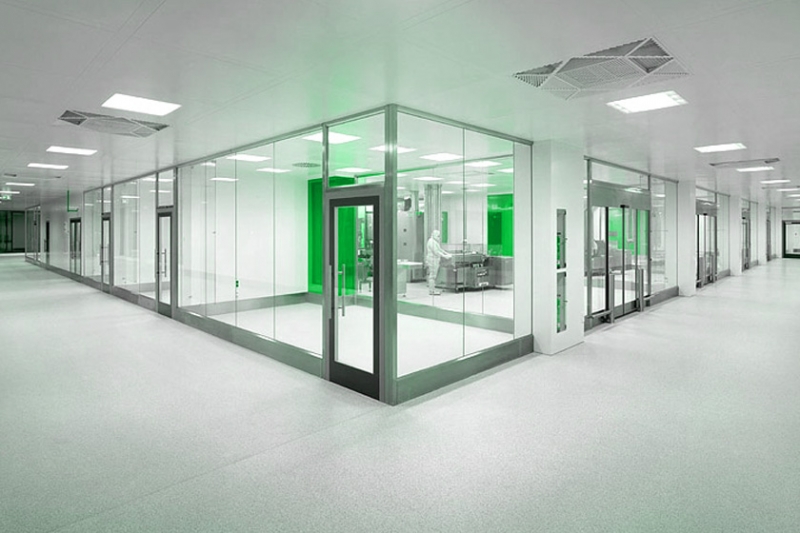Cost. Undoubtedly, the solution using drywall coated with epoxy paint looks, at first glance, the most inexpensive option. In fact, while the level of initial investment could be lower compared with the cost of square feet of installed wall using a modular system, the picture may change looking at a wider scenario.
The cost comparison should also take into account the need for project supervision during assembly (experienced and skilled site managers cost money!) and the need for training (and making sure that supplied procedures are respected and enforced) of contractors who usually are not familiar with the strict rules of a pharmaceutical, biotechnology, or any company that needs to maintain clean environments and area separation. Project management costs should also be compared: a modular cleanroom company should be able to supply at least the architectural turnkey, including flooring, ceilings, furniture, and accessories, using a drywall contractor for your partition; your project manager will probably end up dealing with five or six different suppliers.
Sometimes you will end up paying more for single accessories or services. Your contractor will not get, most probably, the same level of discounts for cleanroom products that a well marketed modular cleanroom company would get. Most modular cleanroom vendors can supply product resistant to scratches or hits. What would be the cost of shutting down your cleanroom if a drywall, epoxy-coated partition is hit, gypsum is potentially spreading into your clean environment, and you have to stop your production, fix the damage, and revalidate?
Need of flexibility. A modular system is intrinsically a flexible system. Different suppliers offer different levels of flexibility; but, in the end, you will be always be able to change you partition layout before, during, and after wall assembly. Depending on the modular cleanroom supplier of your choice, this might be more or less easy, but it will be feasible; it will be done in a clean way without the need to create dust, debris, and any type of scrap incompatible with production areas. Modular cleanroom modifications can be done with the proper precautions while production is in process; drywall partition modification needs a greater and much more careful approach.
Timing. Drywall can be supplied in a shorter time frame. A modular cleanroom company might have the need to manufacture custom-made accessories, while the contractor selected for drywall can be on site “the next day.” Then, timing reliability and project milestones control might be better with a modular wall system ISO 9001 company than with a small “next door” contractor. In this case, history and experience will play a great role.
Project management resources. As mentioned above, going with drywall will mean the need for more involvement of project management; if these resources are not available internally, then outsourcing them might lead to communication or cost control issues. A modular wall system company should supply project management as a part of its core business.
Project environment. Creating partition and ceilings within an existing production area might lead to a problem with ongoing production incompatible with material used for erecting drywalls.
Durability. Modular cleanroom suppliers have a large variety of materials that differ in terms of durability. Some offer materials that give a much higher reliability in terms of robustness in comparison with drywalls. Drywalls might be faster to install, but in certain situations, the walls will get worn faster.
Financing. Modular cleanrooms can be considered, from a financial standpoint, as equipment. They can be leased or expensed in your financial statement as any other piece of equipment.











